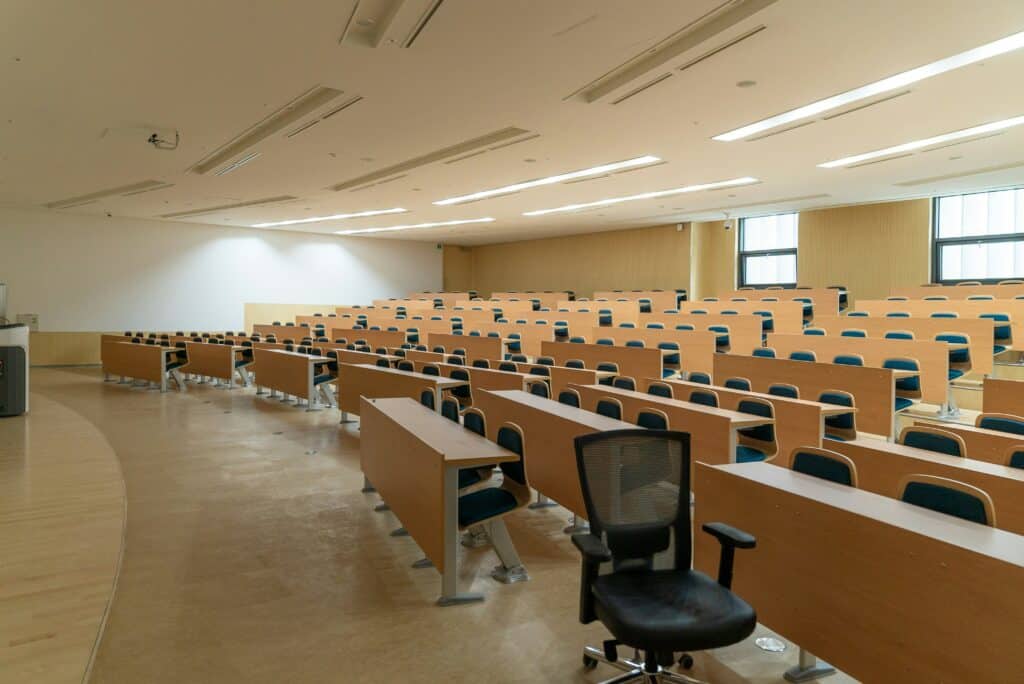A LOOK INTO THE LIVES AND CAREERS OF FREECE FACULTY MEMBERS: PART 5
We have hundreds of esteemed faculty members, working behind the scenes to deliver a constant flow of relevant and interesting continuing education to our learners. While they come from impressive backgrounds and hold a wealth of experience, there are some things that their bios just can’t capture.
Let’s take a moment to peek behind the curtain to give you more insight into the daily lives and careers of the people who are teaching our classes.
We asked some of our top faculty members the question:
“Think back to your own professors in college. Who do you feel like you learned the most from? What did that person do that was different?“
Here’s what they said:
Peter Cohron, BSPharm, JD:
In pharmacy school, David Cobb taught pharmacy law (though at the time I had no thoughts of becoming an attorney). He made dry material interesting. Harry Smith taught Pharmacy Administration and authored our textbook — his writing matched his teaching style — informative and to the point. In law school, Professors Gaetke, Schwemm, and Welling — these three instilled a sense of the good the law can do.
Mark Garofoli, PharmD, MBA, BCGP, CPE, CTTS:
Dr. Melissa Somma McGiney at the University of Pittsburgh. I’ll never forget her first class session with my PharmD class. Bright and early (for a college kiddo) at 8am she hit the stage with the most energized loud voice that I’ve ever heard talking about thyroid conditions. Granted I had yet to discover my appreciation for coffee at the time, but once I jumped past the deer in headlights look on my own face of “wow, she had her coffee early this morning,” I sat back and appreciated her professional passion, a passion that she dynamically instilled in the majority of her audience that morning, and certainly has continued to do so for decades. A few years afterwards, she’d serve as a mentor for my Wife, Dr. Gretchen Garofoli (also a freeCE faculty member!). Birds of a feather.
Peter Kreckel, RPh:
I have a saying that “unless I can apply it to the patient standing in front of me, it is worthless knowledge.” I saw no need for the intensive organic chem, medicinal chemistry and a lot of the pharmacognosy courses. I remember lamenting to the Assistant Dean at Pitt “When I was here, I learned everything about amoxicillin … where it came from, all the bacteria that were sensitive to it, drawing its structure and other useless knowledge. You never taught me how to dose it!!” What I learned from my college professors is that this profession is lifelong learning, and there are always new drugs coming about that you need to learn about. My favorite professors at Pitt were Dr. Regis Vollmer and Dr Michale Zemaitis, both who taught in the pharmacology department and taught us stuff we would actually use!
Gretchen Garofoli, PharmD, BCACP, CTTS, FAPhA:
I have two amazing professors that stand out from my time in pharmacy school at the University of Pittsburgh School of Pharmacy. The first is Dr. Melissa Somma McGivney who was my mentor throughout pharmacy school and still serves as a mentor to this day. Her energy and enthusiasm for advancing the profession of pharmacy is infectious. The other professor is Dr. Scott Drab who taught us endocrinology. He was passionate about taking care of patients with diabetes and had a thriving diabetes clinic when he was practicing. He always tied in real life examples from his practice when teaching us, which helped the concepts to stick. I was also in his class when my brother was diagnosed with Type 1 diabetes, so on a personal level he helped provide resources for me to navigate that curveball in our lives.
Joseph LaRochelle, PharmD, BCPPS, FCCP, FNAP, FPPA:
I was very fortunate in all of my training to have teachers and mentors that pushed me beyond what I thought my capabilities were. My undergrad degree was in both biology and liberal arts so I learned critical thinking and how to present an argument. Very useful skills in pharmacy. During pharmacy school, my professors were amazing and were awesome role models for me. Almost every rotation with the clinical faculty I found myself saying … “I want to be them.” How their depth of knowledge shined in their interactions with patients were truly inspiring for me. In the classroom, there were many professors who taught me how to ask why so I truly understood the material. In my career I have tried to model that form of teaching for my students.
My residencies allowed me to build skills in working with other professionals. It was amazing how pharmacy can truly integrate with all the other health professions. The countless nutrition, nursing, and physician mentors who taught me is something I will never forget and take with me as I work with others.
In my teaching fellowship training, I had the opportunity to have trained education and research faculty assist me in developing skills in educational pedagogy which has been instrumental in my development as an educator. That fellowship program is interprofessional and is now part of physician teacher training, so I got to learn things outside of pharmacy education which helps me with my students.
Donald Sullivan, RPh, PHD:
We had one professor, Dr. Rawan. He used to tell us a joke before every class and they were good ones.
Kevin Hope, RPh:
My goodness, there were so many great ones! For anyone in South Carolina, however, especially those who graduated from MUSC, this name will be immediately familiar: Wayne Weart. Simply put, the man is a self-built pharmacy genius. There was seemingly no question that could be tossed his way without his having a great deal of knowledge about the medication and the intricacies of the studies behind that data. And, he did a lot of things differently! First, he prioritized and valued self-growth. He read new studies. He examined how that information might impact patients … and he shared the thoughts of “why this all matters” to his students. He continues to be very involved professionally and seeks out opportunities to help the community. He is truly one of the finest!
One of the “big projects” that he did with students on rotation was an activity called “bar and grill.” Students would follow a real patient from the rotation and then present them as a case study to Dr. Weart and a handful of other students on rotation at a local “bar” (okay, maybe Applebee’s) while Dr. Weart “grilled” the student asking questions like, “do you feel like that was the best medication choice for this patient?” “Suppose that the patient had been allergic to that medication. What would you have suggested?” “How does this medication impact the patient’s secondary disease state like asthma, diabetes, etc.” You get the idea. Students had to be prepared to answer almost anything … and, it was an amazing learning experience.
In a conversation with my fellow students on rotation, someone said that they wished that they could present something that Dr. Weart had never seen before. But, we all knew that was an unlikely scenario. The man was highly experienced and had read seemingly every piece of literature. Being the prankster that I am, a plan with my fellow students ensued. In addition to my real presentation, I prepared a fake one. In this fake scenario, I introduced a patient with “Johnson-Brevard Syndrome” who was being managed with prednisone, a very non-specific drug. If you have never heard of Johnson-Brevard Syndrome, that is okay. It was completely the result of a deranged student’s mind. All of my fellow students, of course, acted as if they knew exactly what I was talking about and even elaborated a bit. You could see the gears turning in Dr. Weart’s head. I am sure that he was questioning his memory very briefly. My plan began to quickly fall apart, however, as my fellow students could no longer contain the laughter. It was an amazing day of learning. Dr. Weart had an awesome sense of humor and we moved along to my “real patient”, who had something much more commonly recognized … asthma. If you see Dr. Weart, please ask him about Johnson-Brevard for me, please.
We hope you enjoyed these responses as much as we did! Join freeCE today and gain unlimited access to all our courses, taught by our fascinating and dedicated faculty.






